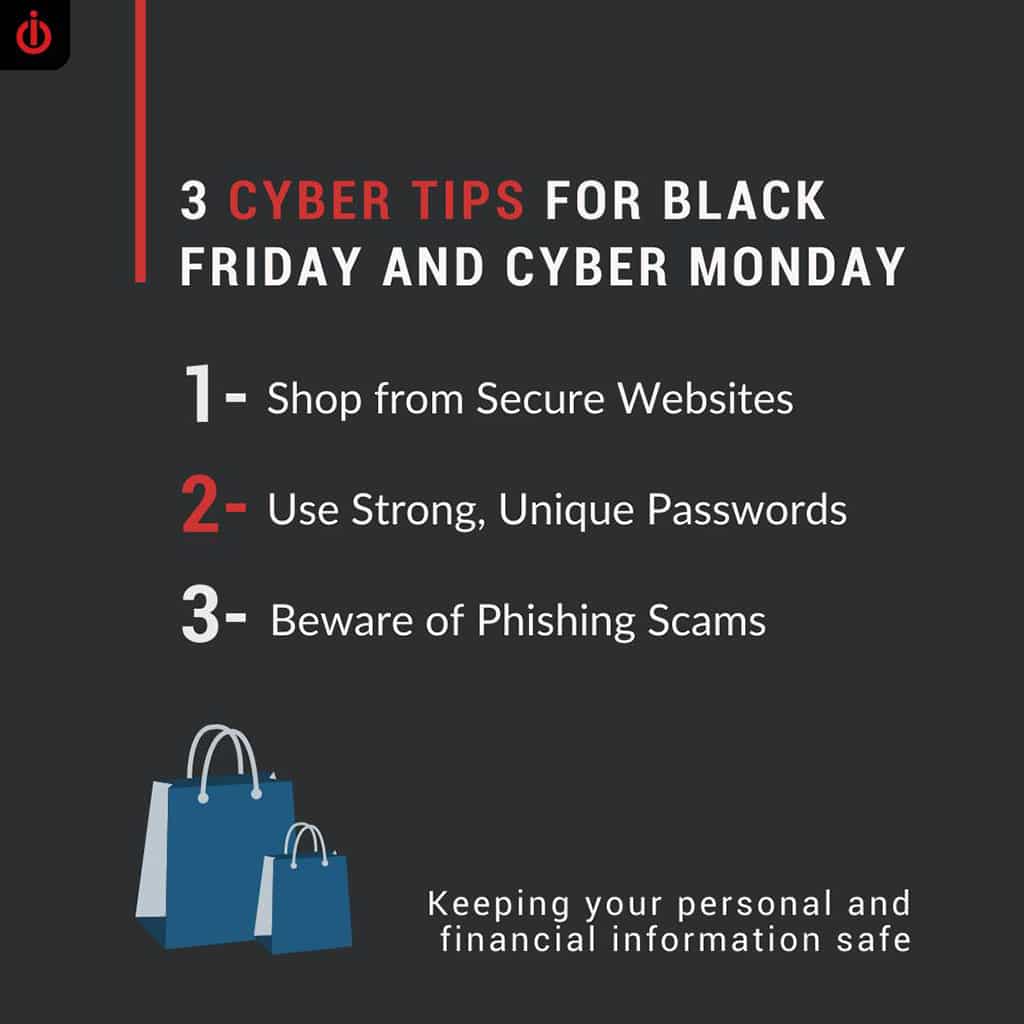Historically, Black Friday used to be more about “physical retail shopping”, rushing to the stores, whereas Cyber Monday (three days later) was where people purchased online. However, in recent years there is less distinction between the two, with a vastly increasing number of on-line shopping purchases being made on Black Friday. For this reason and because there is more data available concerning Black Friday in Portugal, that is the focus of this feature.
Although there are some fantastic bargains to be made on Black Friday (this year November 29) and Cyber Monday (December 2), unfortunately there are criminals who take advantage of this through various scams and on-line fraud.
Black Friday is famous for big sales and shopping frenzy. It’s also a busy time online, with Salesforce.com reporting increased worldwide online sales hitting a record $40 billion in 2023. Yet, alongside this rise in legitimate transactions, there was a notable increase in fraudulent activity, with reported losses from scams associated with Black Friday and Cyber Monday climbing by 22% from the previous year. These statistics don’t just reflect consumer zeal for deals; they also underscore the period’s vulnerability to cyber threats.
Trends for 2024
More Portuguese people are looking to take advantage of the shopping opportunities offered by Black Friday. Overall, 90% of citizens say they intend to shop on Black Friday, two percentage points more than last year (88%). However, the average amount that the Portuguese intend to spend is 8% lower than last year. While in 2023 the Portuguese said they intended to spend €359, this year that estimate has fallen to €330. Two-fifths of potential Black Friday shoppers tend to start monitoring prices one to two months in advance, while around a third do not do any preparation at all.
This year from November 25 in what is known as black week, you’ll find low prices and incredible discounts across all product categories from most brands, but most shoppers eagerly await the lowest prices on Black Friday, the 29th.
Scams to look out for
There are many at this time of the year and the following are those which you are more likely to come across.
Counterfeit or fake products
Some third-party sellers on Amazon can create listings for counterfeit or low-quality products, especially during high-traffic sale events like Prime Day. While these products may look like the real thing, they are often made cheaply and lack proper certifications and warranties. To spot this and avoid trouble, make sure to remain cautious of items listed at very low prices or from unknown brands. Always check a seller’s rating, read verified reviews, and avoid products that have an unusually high number of 5-star ratings without detailed feedback. Stick to brands or sellers you know and trust. Look for items marked as “Fulfilled by Amazon” or “Amazon’s Choice,” which are generally more reliable.
Fake ‘winning’ notifications
During the Black Friday season, be on your guard if you suddenly receive a notification along the lines of “You’ve won a prize” or “You’re a lucky winner”.
Sometimes, you will receive a notification stating that you have won a free gift or a large prize, like a TV or a gift card, as part of Black Friday promotions. To claim it, scammers will ask for your personal information or payment to cover alleged “shipping costs.”
But while you might already be aware of these kinds of scams, there are newer more sophisticated versions including voice phishing (vishing), email, SMS, and social media ads to trick users. Some scammers have also created fake apps or browser extensions to generate pop-up “winning notifications.”
Genuine promotions from reputable retailors never require payment to claim prizes. Always be sceptical of offers that seem too good to be true, especially if you are asked for an upfront payment or additional personal information.
Phishing texts and email
Phishing texts and emails targeting online customers have become a widespread issue. Scammers will send fake emails or text messages that appear to be from the retailer, and these may claim that there’s an issue with your order, request account verification, or provide a link to “claim a special offer.”
To spot this, look out for misspelt words, generic greetings like “Dear Customer,” or unusual sender addresses. Bonus.com top tip: Never click on suspicious links; instead, go directly to the retailer’s official app or website to check your account.
Comparing prices
We recommend using the DECO PROteste, Compare Prices tool which helps you understand whether discounts advertised during periods such as Black Friday or Cyber Monday are good buying opportunities. This search tool records the evolution of product prices in online stores, to advise you whether or not to buy them. Simply search for the name of the store and the product, or, even simpler, enter the full link of the product as it appears in the online store in the “Search by URL” box. The result returned is a traffic light with three different colours and meanings, based on the price history of the last 21 days: Green, red and yellow.
Prevention – top 5 tips
Never use public Wi-Fi when making purchases or entering personal information. Public Wi-Fi networks are at a much higher risk of being hacked.
Use credit cards over debit cards, as credit cards offer more fraud protection if you are scammed.
Ensure your shopping account is protected by a strong, unique password that isn’t used on other sites and isn’t connected to your personal life, which could be figured out from your social media accounts.
Watch out for scam emails that may appear identical to real ones. Are the images copied from a web search? Only send an electronic payment to someone you know or trust.
Ensure your device, browser, and app software are up to date to minimise vulnerabilities that hackers could exploit.
Remember, scammers are counting on you to be in a hurry this time of year, and maybe a bit stressed and a little disorganized! Take your time while shopping out there and keep an eye out for their tricks. That extra moment can save you far more time and money than you may think.
By David Thomas
|| features@algarveresident.com
David Thomas is a former Assistant Commissioner of the Hong Kong Police, consultant to INTERPOL and the United Nations Office on Drugs and Crime.
In 2011, he founded Safe Communities Algarve to help the authorities and the community prevent crime. It is now registered as Associação SCP Safe Communities Portugal, the first national association of its type in Portugal.
913 045 093
info@safecommunitiesalgarve.com
www.safecommunitiesportugal.com



















